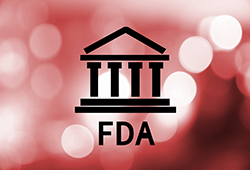 Pursuant to the five year reauthorization of FDA’s user fee programs for prescription drugs, generic drugs, and biosimilars, FDA recently released its five-year financial plans (2018-2022) for the programs. The plans “communicate the anticipated financial positions of the Biosimilar User Fee Amendments of 2017 (BsUFA II), the Generic Drug User Fee Act Amendments of 2017 (GDUFA II), and the Prescription Drug User Fee Amendments of 2017 (PDUFA VI),” and explain how FDA’s resources will be allocated in the drug review process.
Pursuant to the five year reauthorization of FDA’s user fee programs for prescription drugs, generic drugs, and biosimilars, FDA recently released its five-year financial plans (2018-2022) for the programs. The plans “communicate the anticipated financial positions of the Biosimilar User Fee Amendments of 2017 (BsUFA II), the Generic Drug User Fee Act Amendments of 2017 (GDUFA II), and the Prescription Drug User Fee Amendments of 2017 (PDUFA VI),” and explain how FDA’s resources will be allocated in the drug review process.
According to Regulatory Focus, submissions under all three programs have increased in recent years, and that trend is expected to continue. For example, FDA received only 10 biosimilar applications before fiscal year 2017, but received 12 original applications in fiscal year 2017 alone. FDA has committed to hire 15 new employees this year to review work submitted under the BsUFA. FDA stated that it previously had received “fewer original biosimilar biological product application submissions than the Agency had initially expected to receive, which resulted in the collection of relatively more BPD [biological product development] fees than expected and fewer application, establishment, and product fees.” The agency expects to collect about $40 million in user fees in 2018, which it will combine with a $48 million carry-over to cover approximately $45.5 million in anticipated administrative and service costs.
With respect to prescription drugs, the PDUFA VI stipulates that the agency intends to expand its patient-focused drug development program, improve management of combination products, consider using data from the healthcare system in safety and efficacy determinations, and establish new programs on computer simulated trial design and model-informed drug development. FDA will also create a new program for complex generic drugs under the GDUFA II, which will include additional support to applicants preparing ANDAs.

